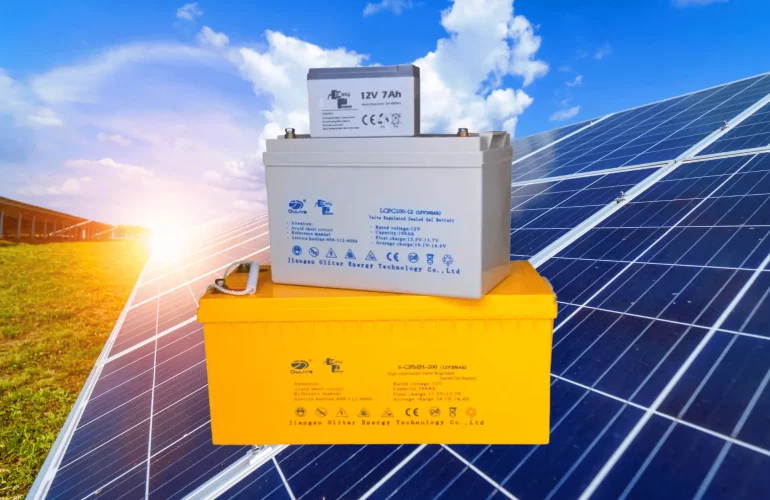Residential Solar Batteries in Uganda: Powering Your Home
You’re ready to harness the power of the sun for your household’s energy needs in sunny and vibrant Uganda, where the equator crosses right through your birthplace. Residential solar batteries have emerged as a game changer, allowing you to achieve energy independence while lowering your carbon footprint.
In this in-depth tutorial, we will delve into the realm of household solar batteries in Uganda, investigating their benefits, how they operate, and why they represent the future of powering homes in this beautiful East African country.
Why You Need Residential Solar Batteries
Uganda, regarded as the “Pearl of Africa,” is noted for its magnificent landscapes, diverse biodiversity, and thriving economy. However, Uganda, like many developing countries, confronts issues in guaranteeing a steady and sustainable energy supply for its inhabitants. Despite tremendous progress, the national power grid still faces regular outages and voltage changes, keeping you in the dark at the most inopportune moments.
Residential solar batteries come into play here. These ingenious systems capture surplus energy generated by your solar panels during the day and store it for use at night or during power shortages. Here are a few strong reasons why you should invest in residential solar batteries:

1. Energy Reliability
With solar batteries, you can enjoy a consistent power supply, even when the grid fails. Say goodbye to disruptions during crucial moments, such as cooking, working from home, or simply relaxing with your family.
2. Cost Savings
Investing in solar batteries significantly reduces your electricity bills. By storing excess solar energy, you rely less on expensive grid electricity, ultimately saving money in the long run.
3. Environmental Benefits
Uganda, like the rest of the world, is grappling with the effects of climate change. Solar batteries help you reduce greenhouse gas emissions by promoting clean and renewable energy sources. By choosing solar batteries, you’re contributing to a greener and more sustainable Uganda.
For the most affordable and reliable solar batteries in Uganda check here
How Residential Solar Batteries Work
Understanding how residential solar batteries work is critical to realizing their full potential. Here’s a brief explanation of the procedure:
1. Solar Panel Production
It all starts with installing solar panels on your roof or in a sunny part of your home. Sunlight is captured and converted into direct current (DC) electricity by these panels.
2.Conversion of Inverters
The direct current (DC) electricity generated by your solar panels is then sent to an inverter, which transforms it to alternating current (AC). This is the type of electricity that powers your home’s appliances and lighting.
3. Charging Your Battery
While your home’s immediate energy needs are met, any excess electricity is directed to your residential solar battery for storage. Think of the battery as a reservoir that fills up during the day.
4. Using Stored Energy
When the sun goes down or during power outages, your home seamlessly switches to using the stored energy in your battery. This ensures a continuous power supply, just as if you were connected to the grid.
The Benefits of Residential Solar Batteries for You

Residential solar batteries provide numerous benefits to you, making them an appealing purchase. Let’s take a closer look at these advantages:
1. Energy Self-Sufficiency
You are no longer at the mercy of the national grid with solar batteries. You have more control over your energy consumption and can rely on stored power when necessary.
2. Grid Assistance
Solar batteries can be set up to help the grid during high-demand periods. This helps to regulate Uganda’s overall energy supply by eliminating blackouts and voltage variations.
3. Lower Carbon Footprint
You may lessen your reliance on fossil fuels and contribute to a better environment by generating and storing pure solar energy. This is critical for a country fighting climate change.
4. Return on Investment
While the initial cost of solar panel installation and battery purchase may seem significant, the long-term savings on electricity bills and the potential for selling excess energy back to the grid can provide a substantial return on investment.
Choosing the Right Residential Solar Battery
Choosing the best residential solar battery for your home is an important decision. Here are some things to think about:
1. Capacity of the battery
The battery’s capacity controls how much energy it can store. Choose a capacity that corresponds to your household’s energy requirements.
2. The Chemistry of Batteries
The lifespans and performance characteristics of various battery chemistries, such as lithium-ion and lead-acid, differ. Investigate these options to determine the greatest fit for your needs.
3. Guarantee
Examine the guarantee provided by the battery manufacturer. A longer warranty period frequently demonstrates trust in the product’s durability.
4. Installation and upkeep
Consider the ease of installation as well as the continuing maintenance needs. Some batteries may necessitate professional installation and maintenance.
In Conclusion
Residential solar batteries have the potential to change the way Ugandans obtain and use electricity. You can achieve energy independence, save money, and contribute to a greener world by utilizing your country’s abundant solar.
Purchasing a domestic solar battery is not just a wise financial decision; it is also a step toward a brighter and more sustainable future for Uganda. With the power of the sun at your disposal, you can truly illuminate your home and life.
Don’t pass up the chance to embrace this transformational technology. Contact us today to begin your journey toward using residential solar batteries to power your home.




